
It is time for flexibility between Iran and the West
The editorial of Setareh Sobh deals with the necessity of showing flexibility if Iran and the West try to improve their relationship.
Three European countries – France, Germany, and England – blamed Iran for the attack against Saudi oil facilities, and they spoke about a new agreement that would address Iran’s missile program, and its presence in the region as well as its nuclear issue.
As for confrontation between Iran and world powers, each side has a different interpretation of the situation. Iran believes that reducing its commitment to the nuclear deal will push western countries to move closer to Iran’s side. What is more, Iran hopes to make the Europeans attend to its demands by creating a security atmosphere in the region.
On the other hand, the Europeans move closer to American policies because of their weakness on security issues. In addition, if the deal is rescinded, they will move closer to America. So in order to control regional tensions, the Europeans intend to keep the nuclear deal in place.
Meanwhile, Iran has reduced its commitments in the deal, and the three powerful European countries are talking of a new nuclear deal to replace the JCPOA. Iran is after preserving the JCPOA, which is why Rouhani urged in his meeting with Macron that the Europeans shouldn’t forget their commitments in the JCPOA.
Now that the Iranian diplomatic team is in the United Nations and they are talking about Iran’s plan for security and stability in the region, we should wait and see what issues will be raised in Rouhani’s speech and what proposals will be offered during Rouhani’s talk with Merkle and his talk with Boris Johnson.
If the trip of the Iranian delegation to New York is just for propaganda purposes, it will be useless. Nevertheless, if it is a diplomatic trip, changes must be observed on both sides, and there must be flexibility to improve the issues that exist between Iran and the West.
Setareh Sobh
What solution is there for de-escalating tensions between Iran and America?
The editorial of Setareh Sobh focuses on the difficulties that lie ahead to de-escalate tensions between Iran and America.
Christian Amanpour, a CNN correspondent, claimed in a tweet that the Iranian Foreign Minister Mohammad Javad Zarif had told her that if the sanctions were removed, it isn’t impossible for Hassan Rouhani and Donald Trump to meet in the sideline of the UN General Assembly in New York.
The problems that currently exist between Iran and America do not seem to be resolvable by holding one or several meetings between senior officials of the two countries. It must be noted that the Islamic Republic has always raised the slogan of “no talks, no compromise” — which hasn’t been able – nor is it able – to resolve the issues between the two sides.
What is more, the shadow government in Iran tends to tie itself to radical positions making it impossible to have dialogue and interaction with the world.
On the other hand, the sanctions are the American administration’s tools to reach its goals. They want the Islamic Republic to change its policy of wanting to destroy Israel, while this is a strategic issue in Iran.
Rivals can defeat each other by using two methods: Firstly, by imposing a costly economic war, and secondly, by ensuring public opinion is kept in fear of a destructive war. With these two methods in mind, one can see that Iran and America are already engaged in both a destructive economic war and a military war in different regions of the Middle East.
So it must be noted that holding a meeting between the presidents of Iran and America cannot deescalate the tensions that have become widespread between the two countries.
Setareh Sobh
Prospect of Hormuz Peace Initiative
The editorial of Jahan Sanat deals with Iran’s peace initiative for the Gulf region, shedding light on the difficulties and promises of such an initiative.
Iranian President Hassan Rouhani has headed for New York to take part in the UN General Assembly meeting. He will deliver a speech in the Assembly, and hold meetings with senior diplomats, and media elites. In addition, he will meet a number of American officials involved in US foreign policy.
His speech will focus on Tehran’s Hormuz Peace Initiative and its roadmap. Some hold that Tehran’s claims in the roadmap are not verifiable, because Tehran’s behavior has proven to be against peace in the Gulf region.
For example, prior to announcing Tehran’s new peace initiative, Rouhani had strongly announced that if Iran’s oil was not sold and exported, then the oil of other countries shouldn’t be sold and exported either; it is possible for Iran to make the Strait of Hormuz insecure and unsafe for Washington and its allies.
Under such circumstances, such an initiative is against Tehran’s true behavior in the Gulf and particularly in the Strait of Hormuz. In the light of Tehran’s intentions and goals, such an initiative cannot be welcomed and accepted by regional and transregional actors.
Nevertheless, such an initiative cannot be useless as some suggest. In fact, given the hidden messages of such an initiative, it can be truly important. Such an initiative shows that through diplomacy and dialogue, some regional challenges can be overcome.
Such initiatives highlight the importance of compromise and diplomacy instead of dispute and fear. They indicate that despite all the existing dangers and challenges ahead, the path to diplomacy and dialogue is not closed.
For this initiative to come to fruition, Tehran must include in its agenda the necessity of dealing with its neighbors, using it for constructive strategic diplomacy.
Jahan Sanat
Significance of Rouhani and Zarif in New York
The editorial of Jahan Sanat focuses on the significance of Iran’s participation in this year’s session of the UN General Assembly in New York.
Eventually, despite all doubts, visas were issued for Rouhani and Zarif to take part in the UN General Assembly in New York. Of course, before issuing the visa, there was a consensus that Tehran should not take part in the 74th session of the UN General Assembly, because the general atmosphere is not to Iran’s advantage, due to recent regional incidents, particularly the Aramco crisis.
However, it seems that in the light of the significance of this event, Tehran’s participation in this session can be more fruitful than its absence, as it can provide opportunities for Iran.
The significance of Tehran’s presence in New York indicates the other side of the US maximum pressure campaign against Iran i.e. Trump’s willingness to negotiate with Iran.
It seems that a chance meeting between Rouhani and Zarif with Trump is not impossible, since the US president has not rejected the idea, and Zarif too recently announced that despite Washington’s pressures, he is ready for negotiations. If such a meeting takes place, Tehran might be able to convince Washington to moderate its confrontational policies and might even be able to convince Trump to lift part of the sanctions imposed on Iran.
Iran’s presence in the UN General Assembly in New York can also create a safety margin for Tehran. It can alleviate the current international pressures against the Islamic Republic due to the incident in Aramco and other similar incidents. The other important issue is the absence of Netanyahu from the General Assembly this year.
Jahan Sanat

Germany, France, and the UK blame Iran for the oil attacks in Saudi
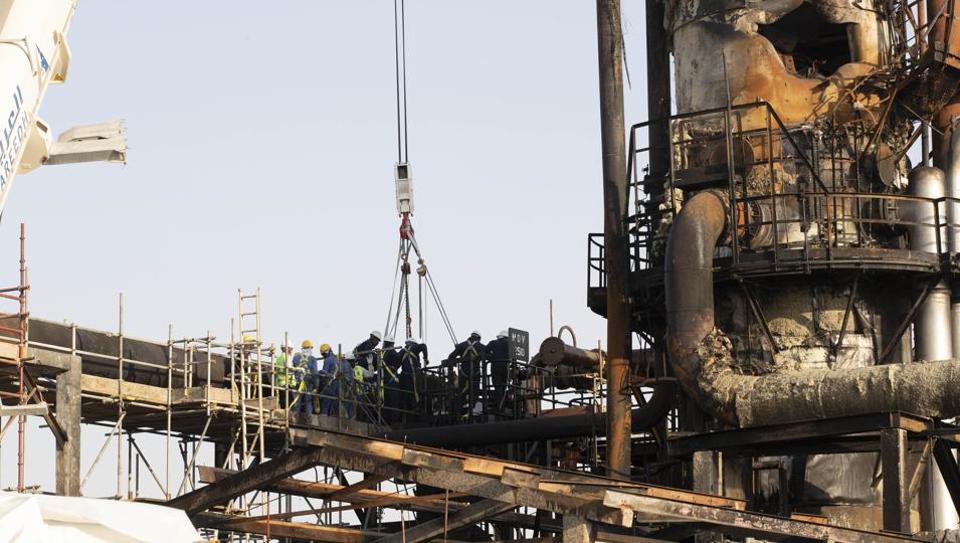
On the sideline of the UN General Assembly meeting in New York, the leaders of France, Germany, and the UK issued a joint statement blaming Iran for the attacks on Saudi oil facilities and asked Iran to negotiate over regional security issues including its missile and nuclear programs.
In this statement, Macron, Johnson, and Merkel emphasized: “it is clear for us that Iran is responsible for the attacks against Saudi oil facilities and there is no other explanation”.
The US Secretary of State Mike Pompeo tweeted: “The U.S. thanks our close friends, UK, France, and Germany, for their clear articulation of Iran’s sole responsibility for the act of war against Saudi Arabia and its impact on the region and the world”.
Macron, in a meeting, which took more than 90 minutes, told the Iranian President Hassan Rouhani that it is time for Iran to help resolve the crisis in the region, and the Iranian regime must decide and start negotiating in regards to regional security issues.
At the same time as Rouhani and Zarif’s trip to New York, Iranian “hardliners” made a lot of threats within Iran. IRGC and Army commanders keep denying the Islamic Republic’s role in sabotage acts in the region. Meanwhile, they back Shia militias and their operations in the region calling them the “Arm of Resistance”.
Kayhan London
Brian Hook: America is after forming an international coalition to confront Iran
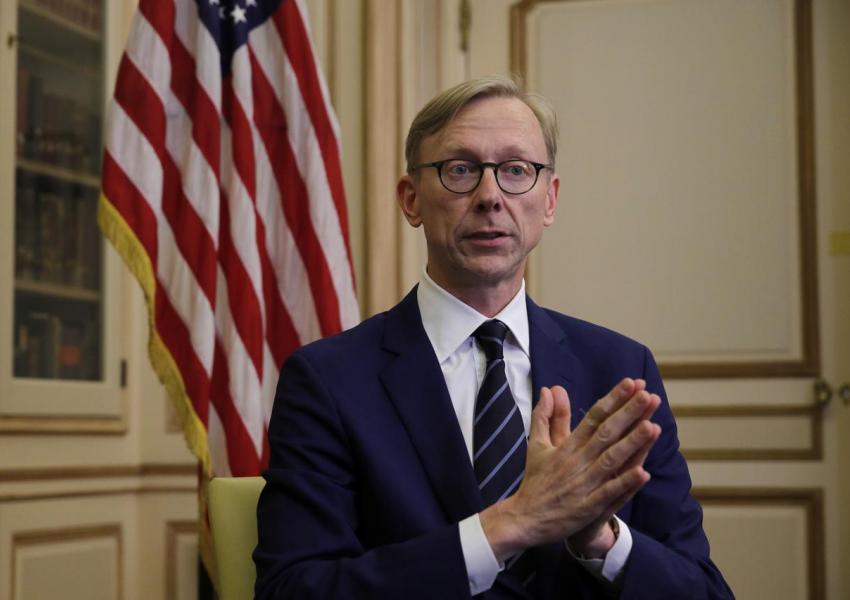
The head of Iran’s Task Force in the US State Department said following the attacks against Saudi oil facilities, America will increase pressures on Iran. Brian Hook added that Washington is after forming an international coalition to confront Tehran and will act cautiously.
Hook in a meeting in the Asian Society in New York classed Iran’s attacks against Saudi as “going too far”, saying that the United States is after confronting this issue through diplomacy and multilateral efforts and the UN Security Council can play a role in this regard.
He said that Iran has spent about $16 billion to back its proxy groups in Iraq, Syria and, Yemen, and it has spent hundreds of millions of dollars on the Houthis in Yemen, while annually giving $100 million to Hamas and Islamic Jihad in Palestine.
Hook said that the US maximum pressure campaign has taken away Iran’s resources depriving the Iranian regime of billions of dollars. He added that about $50 billion of Iran’s financial resources have been taken away, to the extent that Hezbollah – Iran’s proxy group – is complaining of not having money.
He asserted that the United States has exempted medicines from its sanctions, so if the Iranian people do not have access to medicines, its the fault of the Iranian regime.
The head of Iran’s Task Force in the US State Department stated, “We ask all countries of the world to join us in our efforts to stop Iran’s measures. This is significant both morally and strategically so that Iran changes its destabilizing behaviors in the region.”
Hook stressed that many countries of the world, particularly the regional countries, are tired of the destabilizing behaviors of the Iranian regime. The entire region and the world are subject to the IRGC’s threats, which is why America has designated it as a terrorist group.
Iran International
The Council for Managing Political Transition in Iran declares its existence
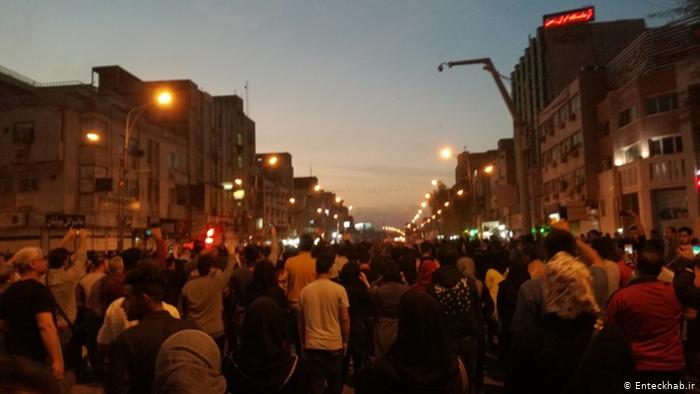
The Council for Managing Transition announced its existence calling for an “unconditional transition” from the Islamic Republic to democracy in Iran. It will officially start its activities from September 28 and 29 in Imperial College London.
In the statement announcing its formation, it is asserted that the Council is a comprehensive umbrella for all Iranians who, despite their different political and cultural horizons, are after an unconditional transition from the Islamic Republic to democracy and are devoted to freedom, democracy, and the human rights in Iran.
Hassan Shariatmadari, a political activist and one of the founders of the Council said that this Council has been endorsed by certain figures from within Iran, adding that “we have received messages from Iran that will be read in the inauguration ceremony. They have bravely and heroically backed our measure by sending audio and visual messages.”
The separation of religion from state, independence of Iran’s three branches of governance, stopping any kinds of discrimination, recognizing political, social and cultural rights of Iranian ethnic groups, recognizing the right to teaching mother tongues along with Persian language in schools, and organizing the country’s bureaucratic system based on the principle of decentralization are some of the proposals for Iran’s future political structure.
Hassan Shariatmadari stressed that the Islamic Republic has lost its legitimacy and public trust; the regime isn’t efficient; it is not cooperating with the international community, and it is now ruling by force. He emphasized that these points show that the collapse of the Iranian regime has started and “we must introduce a replacement for this regime so that the political collapse wouldn’t end in social collapse”.
Deutsche Welle
New educational year; shortage of 100,000 teachers
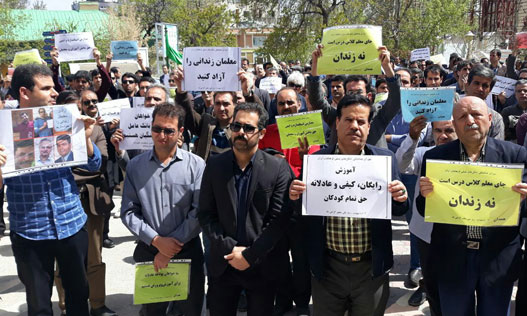
14.6 million students have signed up for the new educational year. Old schools, classrooms with 40 students and more, and a shortage of human resources and teachers are the main challenges facing the Ministry of Education.
The Education Minister has admitted that there is a shortage of about 100,000 teachers this year. The Ministry has announced that 570,000 classrooms have been foreseen for the new educational year. According to Mehr News Agency, there is a shortage of educational spaces, particularly in metropolises like Tehran.
30% of Iran’s educational spaces are old and require renovation. It was announced before that during the past two years the number of mud schools in Iran has been reduced from 1000 to 400 units. Most of these schools are located in Sistan and Baluchistan province, and the rest are in provinces like Kerman and Golestan. Mud schools might collapse any minute. In 2016, a little girl died under the walls of a mud school in the city of Chabahar.
Along with the beginning of the new educational year in Iran, 13 teachers are still imprisoned or exiled. During the last educational year, Iranian teachers launched strikes three times in protest against their poor living conditions and education being treated like a commodity.
According to official statistics, in the new educational year, at least 142,000 students will not enroll in schools. Just as in past years, most of these students belong to the provinces of Sistan and Baluchistan and Khuzestan.
Deutche Welle
Radio Zamaneh
Iran’s transactions with Russia and Turkey done in their national currencies
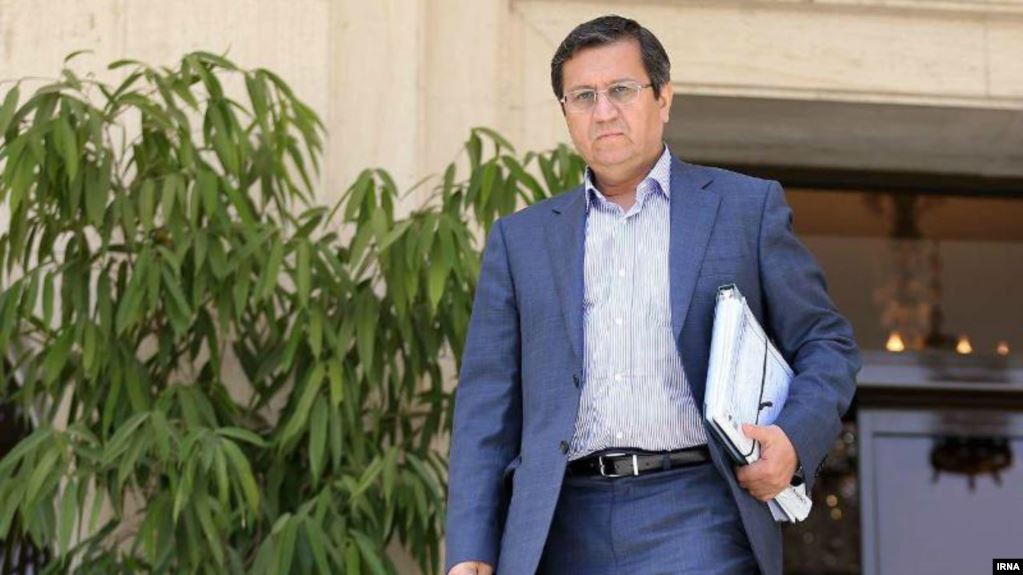
According to the Governor of Iran’s Central Bank, currently all financial transactions with Russia are done with both countries’ national currencies; about 30 to 40 percent of transactions with Turkey too are done with this country’s national currency and the rest is with euros.
Abdolnaser Hemati announced that Iran doesn’t have any dollar transactions with these countries.
Iran is using the Russian ruble and Turkish lira for transactions with these two countries. Hemati said that this process will gradually eliminate the dollar from the cycle of transactions and currently many countries are interested in doing trade with their own currencies so that America cannot oversee their transactions.
Russia’s custom statistics show that Moscow’s exports to Iran have increased by 40% reaching roughly $1 billion, while its imports from Iran have decreased by 8% decrease, reaching one-third of its normal figure.
Turkey’s official statistics show that its exports to Iran have decreased by 7% reaching $1.4 billion, while its imports from Iran have dropped by 37.5% reaching $2.8 billion.
Radio Farda
